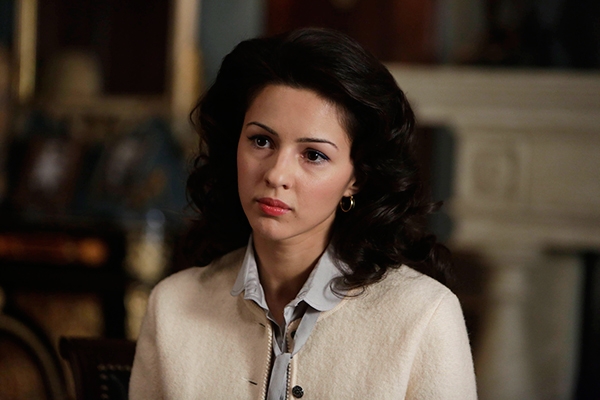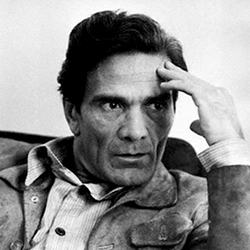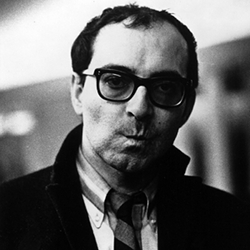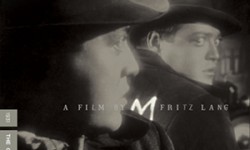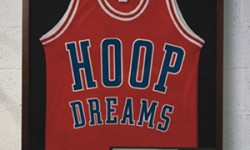
The Americans: “New Car” (2.8) - TV Recap
The Americans: Season 2 Episode 8 - New Car
April 16, 2014, 10:00 p.m. (EST), FX
What does it mean to be a good person? What does it mean to be a good spy? Philip and Elizabeth chose their profession, in part at least, because they believed in the cause. They believed that they were doing the right thing for the Motherland, for the future. But the deeper into espionage they get, the harder it can be to tell where and how they are doing good, and when they might cross the line. It is easy to view the job as inherently good, and to let that justify whatever it is you do in it. But when you’re watching a protégé strangled to death, or weighing whether to shoot a shaking man in the woods, it can be hard to imagine this is all in service of anything worth serving.
“New Car” also drops us back into the oldest point of conflict between Philip and Elizabeth: he likes it here, and she can’t let herself, not really. Elizabeth recognizes the niceties America offers. She sees how it makes life simpler in certain ways. But she sees that as simply part of its dark allure, part of the temptation she must fight against. If America is the Devil, then all of the trappings of capitalism are just various tantalizing apples. Philip sees no harm in plucking a few so long as he’s on the side of the angels. Elizabeth sees the way the rot can seep in, how easy it is to be seduced by the most seductive economic and political system in the history of the world. She sees the system, and she can’t admit she has succumbed to it, even if it’s true. Philip, though, can appreciate a Camaro and rock and roll, at least for what it’s worth.
After a season that has shifted the points of division between the Jennings, “New Car” may push us too hard back into the direction of the season one dichotomy. But I find it hard to mind, seeing as Philip’s appreciation for America and its trappings, and Elizabeth’s deeply held suspicion about what this all means and the effect it might have always worked pretty well for me. At its best, The Americans almost has to have deeply in-bred criticisms of America and its ‘80s excesses; it has to show us the dark side of our country so we can understand why our heroes might work against it. Philip and Elizabeth have spent decades working within the system to undermine the system. Philip has developed a form of Stockholm syndrome. He understands America and what it can offer you. Elizabeth sees the trappings as a poison pill she is forced to swallow in the name of the greater good. Or at least, that’s what she has to tell herself in order to sleep at night.
The Americans plays its personal ideology pretty close to the vest, pointing out various sides and then situating itself happily in the gray area. But it is hard not to feel Elizabeth’s disgust as she watches Reagan, speaking about defense as he works offensively to topple a democratically elected government; speaking about better times while he works to cover up the rot at the core of America. Reagan was focused on singing America a lullaby and hand-waving away its lasting problems. But with those hand waves, he covered up a lot of serious issues, a lot of gross missteps and ethical lapses, a lot of casual cruelty at home and abroad. Reagan wasn’t evil (no American president is really evil. At most, they are dangerously naïve about the effect of what they do), he was just very good at denial and rationalization, adept at looking toward the problems he thought he had solved, and away from whatever happened in their wake.
But “New Car” is not about America as an evil empire, or at least, it isn’t about America as the sole evil empire. The Soviet Union makes its own mistakes tonight. It, too, is careless with the lives entrusted to it, desperate for a leg up in the dangerous and deadly conflict it has locked itself in. If Regan’s desperation and self-justification lead to messes like Iran-Contra, the Soviet Union similarly embroiled itself in various ploys that lead to massive death tolls (like the submarine catastrophe that happens in “New Car,” the result of the Soviet Union’s failure to test carefully as much as of American counter-intelligence). The Cold War is a nice term for it, one that allows us to all detach a bit and look at it as strictly ideological or economic. But the losses, both physical and moral, were heavy on both sides. The Cold War left scars. The Americans is showing us them as they form.
Laric strangles Lucia. Kate tells Philip that his work is responsible for the deaths of 160 boys. Stan betrays his country to protect Nina, and is burned when he tries to do the right thing by getting code word clearance to figure out what Oleg is up to. This is how spies are made; this is how spies are lost. Ideology feels firm, a rock face we can cling to as everything around us blurs. But it isn’t, not really. Stan Beeman is an upstanding patriot. So are Philip and Elizabeth Jennings. But how much does it take to push them away from everything they held dear? How many people have to die? How many times must their own countries burn them? It is hard, if not impossible, to be both a good person and a good spy. It isn’t clear at this point which our three main characters would choose. Even if they think they know, their preferences are subject to change. No system is perfect. No leader is a saint. Brush up against the negatives for long enough, and alternatives begin to populate your mind. Possibilities roam into your consciousness. The grass on the other side looks a shade of green you’ve never seen before, while everything around you turns to ash. It starts with a new car, or with a new love. It continues when your country’s carelessness or bureaucracy leads to deaths or the possibilities of death. Suddenly, nothing is as solid as it seemed. Everything becomes possible. And that is when you find out who you really are, and whether you look at all like what you thought.
The Roundup
- -“Other people have important jobs and wives. Doesn’t always have to be a choice, Clark.”
- -“Well, at least it’s not a plane…”
- -“Don’t you enjoy any of this? Sometimes?”
- -“You know how I grew up. It’s nicer here. Easier. But not better.”
- -“You can do anything you want.” “So can you.”
- -“She didn’t understand what it is that we do. She didn’t understand what comes first. If she didn’t understand what we do…It was for her god damn country!”
- -“I can stop him. But the god damn bureaucracy’s killing us.” “Beeman. I am the god damn bureaucracy.” “That’s why I’m here.”
- -“They weren’t there. You guys weren’t here. Once I did it, it just seemed easy to keep doing it.”
-
Annie


